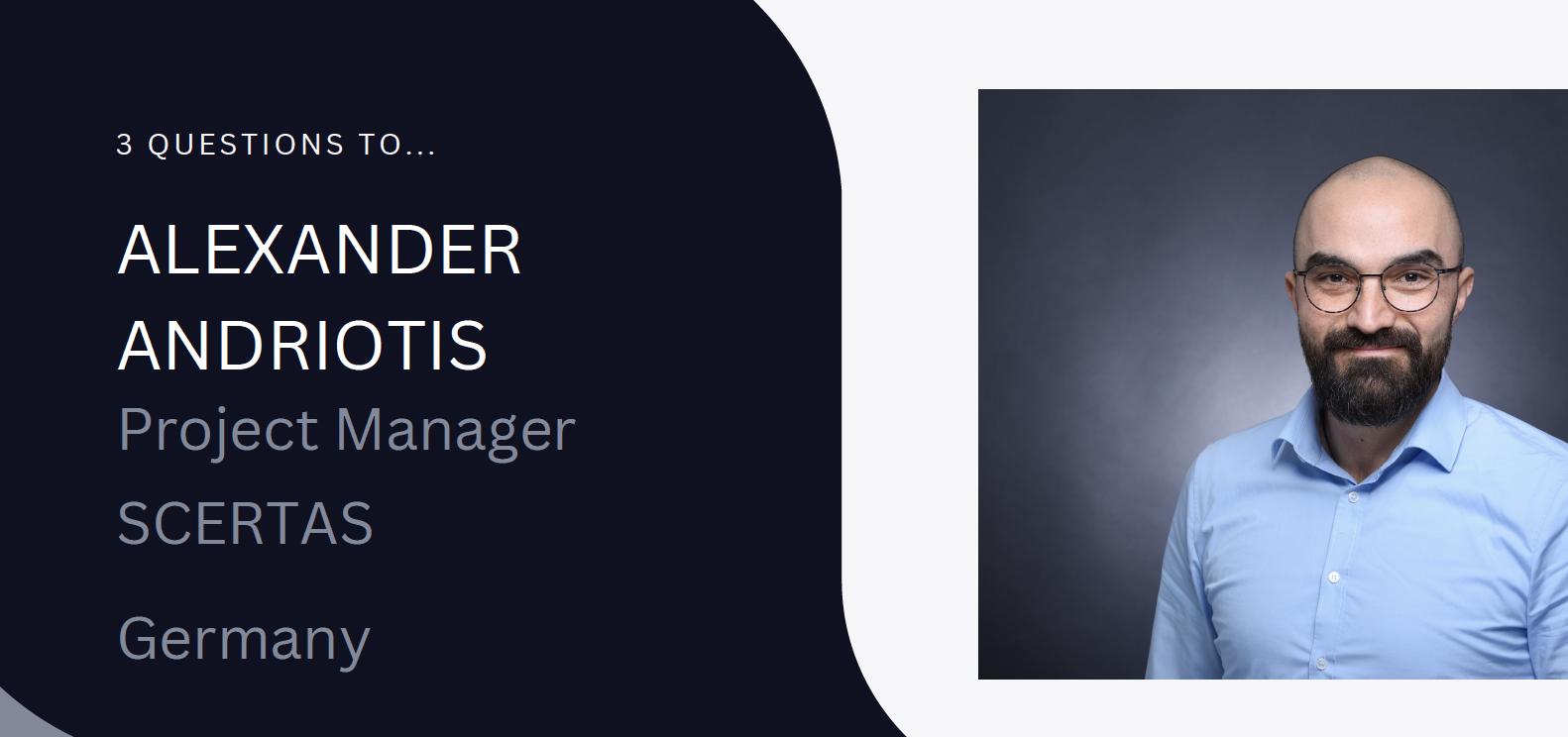3 questions to Alexander Andriotis from SCERTAS
21.11.2024
We asked 3 questions to Alexander Andriotis from SCERTAS (Germany)
Why did your company get involved in the COMMANDS?
We were invited to be part of the COMMANDS consortium by the Technical Coordinator, with whom we have cooperated very fruitfully in the past, but also the concept of COMMANDS was very interesting.
What is your specific role in the project?
SCERTAS role in the COMMANDS project is the Safety and Certification lead. In addition, on ensuring, that the activities performed by all partners of the COMMANDS consortium are directed towards designing and building a Demonstrator, that also addresses the relevant requirements in terms of certification in the disciplines of Safety, (Cyber-) Security, Usability and Ethics.
To achieve this goal SCERTAS together with the COMMANDS partners defined the relevant requirements in phase 1 of the project and defining the procedures for the Design and System prototyping activities for Phase 2 and 3. In this context SCERTAS also supported the planning and coordination of the Validation & Verification activities.
SCERTAS also provided its deep knowledge of Model Based Systems Engineering to the Consortium and supported phase 1 and 2 of the COMMANDS project with System modelling activities in the context of the NATO Architecture Framework (NAF) as well as System Modelling based on the System Modelling Language SysMl 1.5.
How do you see the added value of COMMANDS for the European armed forces?
European armed forces will benefit from the COMMANDS manned-unmanned cooperative system approach, enabling them to adopt the System-of-System to the dedicated need of the logistic mission while still adhering to the qualification basis. This way missions can be performed more efficiently, with less risk to the personnel and without the need to re-qualify the new configuration of the COMMANDS System-of-System.